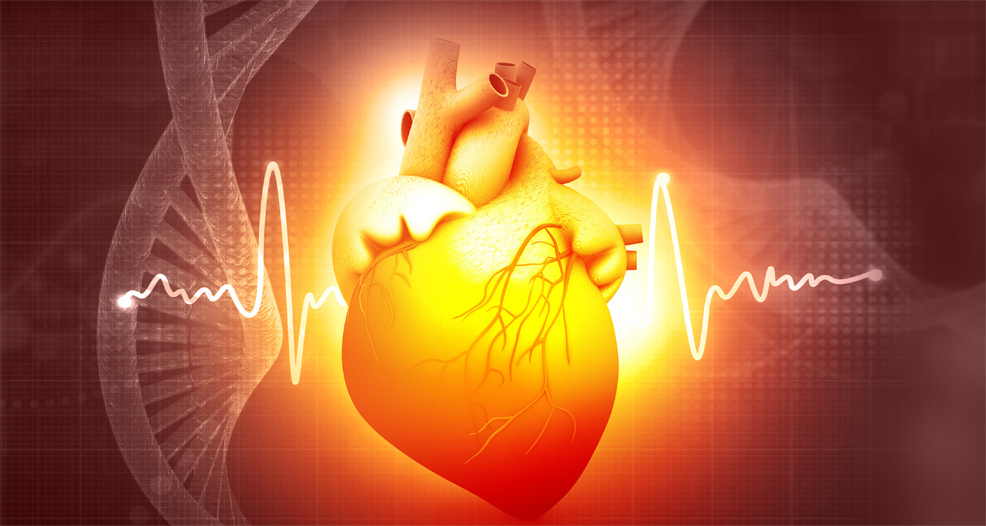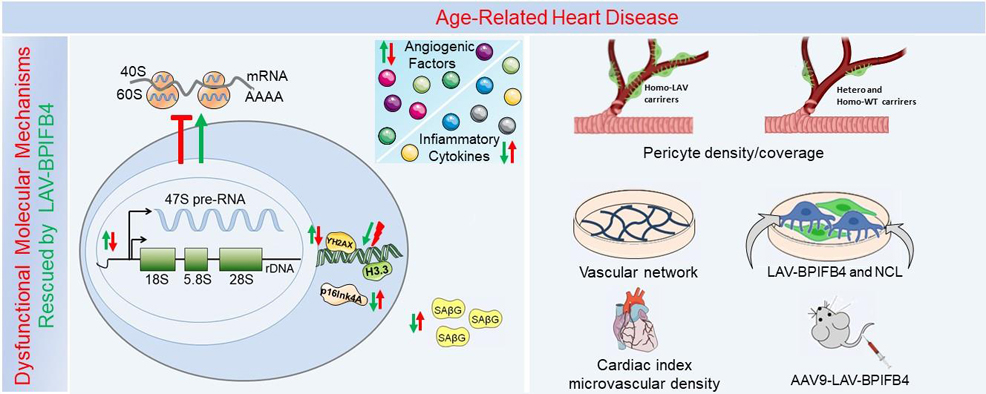
25th January 2023 Anti-aging gene rewinds heart age by 10 years A gene called BPIFB4, discovered in a population of centenarians, could help to reverse the aging of human hearts.
Carriers of healthy mutant genes, including people in so-called "blue zones" of the world, often live to 100 years or more and remain in good health. Cardiovascular complications are also rarer in these individuals. Scientists now believe that a gene may help to keep their hearts young by protecting them against diseases linked to aging. A new study, published in Cardiovascular Research, describes a breakthrough in understanding one such healthy mutant gene, which offers a potential target for patients with heart failure. Known as BPIFB4, the gene has previously been shown to appear frequently in centenarians. This latest research finds that it can protect cells collected from patients with heart failure requiring cardiac transplantation. A team from the UK's University of Bristol, led by Professor Paolo Madeddu, discovered that a single administration of the mutant anti-aging gene halted the decline of heart function in middle-aged mice. Even more remarkably, when given to elderly mice, whose hearts exhibited the same alterations observed in elderly human patients, the gene reversed the heart's biological clock age by the human equivalent of more than ten years. "The heart and blood vessel function is put at stake as we age," said Madeddu, Professor of Experimental Cardiovascular Medicine from the Bristol Heart Institute and one of the study's authors. "However, the rate at which these harmful changes occur is different among people. Smoking, alcohol, and sedentary life make the aging clock faster. Whereas eating well and exercising delay the heart's aging clock. "In addition, having good genes inherited from parents can help to stay young and healthy. Genes are sequences of letters that encode proteins. By chance, some of these letters can mutate. Most of these mutations are insignificant; in a few cases, however, the mutation can make the gene function worse or better, like for the mutant anti-aging gene we have studied here on human cells and older mice."
In addition to researchers from Bristol, UK, the study involved a collaboration with Multimedica Group, a major Italian healthcare provider. A team in Milan administered the gene in heart cells from elderly patients with severe heart problems, including transplantation, and then compared their function with those of healthy individuals. "The cells of the elderly patients – in particular those that support the construction of new blood vessels, called 'pericytes' – were found to be less performing and more aged," explained Monica Cattaneo, a researcher at MultiMedica Group and first author of the work. "By adding the longevity gene/protein to the test tube, we observed a process of cardiac rejuvenation: the cardiac cells of elderly heart failure patients have resumed functioning properly, proving to be more efficient in building new blood vessels." Centenarians pass their healthy genes to their offspring. This study demonstrates, for the first time, that a healthy gene found in centenarians could be transferred to unrelated people to protect their hearts. The Milan team hope to test its effectiveness soon in clinical trials on patients with heart failure. Other mutations might be found in the future with similar or even superior curative potential than the one investigated by this research. The authors of this study believe their breakthrough could fuel a new wave of treatments inspired by the genetics of centenarians.
Comments »
If you enjoyed this article, please consider sharing it:
|








